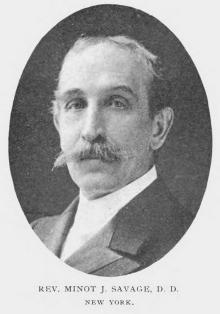Homepage » Logic » Informal Fallacies » Fallacy of Accident Examples

The Fallacy of Accident:
Self-Quiz with Answers
Abstract: The Fallacy of Accident, Fallacia Accidentis, Neglecting Qualifications, and related fallacy examples are provided and analyzed for credibility in a self-scoring quiz.
Fallacy Practice Directions:
(1) These examples are challenging, so if you do not already have a good understanding of the varieties of the fallacy of accident, study the features of the fallacy from the webpage: Fallacy of Accident: Fallacia Accidens.
The Fallacy of Accident: the logical error committed when a commonly accepted generalization is claimed to prove a specific case which is not a proper instance of that generalization.
OR
Neglecting Qualifications: the logical error committed when a statement with certain term or phrase is claimed to prove to another statement with the same term or phrase qualified differently.
(2) Read and analyze the following passages.
(3) Explain with a sentence or two as to whether or not you judge the fallacy of accident to be present.
(4) Check your answer.
Fallacy of Accident Example Exercises
- The Roman Stoic philosopher Seneca advances this argument for the existence of the gods:
“[The] fact that all men agree upon something is a proof of its truth. For instance, we infer that the gods exist, for this reason … there is implanted in everyone an idea concerning deity.”[1]
Here's a translation of this argument into a more convenient form:Whenever persons agree on something, that is a proof of its truth.
Is Seneca claiming that the conclusion is a proper instance of the general premise? Is his claim the phrase “the gods exist” a proper instance of the generalization of “whatever people agree upon …”?
All persons have an innate idea of the gods.
This proves the gods exist,
Seneca appears to proceed logically from a general premise to a specific instance, but the argument is not a fallacy of accident. The conclusion of his argument that gods exist is not an exceptional instance of the generalization that whatever all agree upon is true as it would have had to be if the accident fallacy occurs.
Instead, the informal fallacy is ad populum: i.e., simply because most people believe something is true does not prove that the belief is thereby true.
(Seneca's argument is formally valid, but also is formally unsound since both the premises are false.)
 Consider this argument given over a century and a half ago by Minot
J. Savage, a Unitarian minister:
Consider this argument given over a century and a half ago by Minot
J. Savage, a Unitarian minister:
“I am aware that it is quite a popular American notion that we are all born free and equal. … Men are not born free. They are born bound and limited by a thousand conditions. They are not born equal. … [T]here are not only these differences of natural ability with which we start in life, but there is the difference which comes from the development of these faculties, the acquired training.”[2]
Has Savage proved we are not all born free and equal? Does the crucial term or phrase at issue “free and equal” neglect contextual qualifications of the phrase in the American principle (and in the same principle set down today in many additional human rights documents) that we are all born free and equal?
Even though people are said to be created equal from a moral or political point of view, it does not logically follow that people are created equal in other aspects. The fallacy of accident in this example is the mistake of confusing the implicit contextual meaning of equal rights of all individuals in the general premise with equal abilities and equality of worldly outcomes of individuals in the particular conclusion.
The argument by Savage is an example of quoting a phrase out of context since the clause “all men are created equal” is taken from the second paragraph of the U.S. Declaration of Independence, a passage listing the senses of equality meant.[3]
- Some general statements have the implicit qualification of the time, place, or circumstance in which they are expressed.
Evaluate the following seventeenth century advice from John Locke as if the advice were to be given today:“[N]o man can pass for a scholar that is ignorant of the Greek tongue.”[4]
If a Greek teacher today were to quote this statement in an effort to attract more students, would a fallacy ensue?
The implicit argument in this question can be informally phrased as follows:If anyone seeks to become a scholar, learning Greek is required.
If Locke's advice were to be given today, the fallacy of accident would be said to occur since the generalization is relevant to the time and circumstances in which it was written. The advice that all scholars should know Greek was stated absolutely without qualification, but today that advice is an exceptional or atypical recommendation.
You are someone who seeks to be a scholar.
∴ You need to learn Greek.
- Evaluate the following viewpoint presupposing an inference using a religious law for a political purpose:
“The Ten Commandments prohibit theft and envy, the pillars of socialism — using political power to seize and redistribute private property — which the highly politicized left-wing crowd so loves.”[5]
Does the accident fallacy occur in this editorial expression of an implicit argument?
The fallacy of accident occurs since the religious generalization is being applied in an atypical instance. The government's right of eminent domain, the power of the government to take private property and convert it for public use, is not a typical circumstance of religious law.
- Evaluate the following argument:
“[T]o intentionally kill a fellow-man is murder: therefore the hangman is a murderer.”[6]
Does the argument commit the fallacy of accident or does the cogency of the argument depend upon a verbal issue?
On the one hand, the fallacy of accident can be said to occur if one accepts the judgment that murder is the illegal taking of life. Since the hangman is legally justified in the taking of life, then, by definition no murder is committed. So, if the legal intentional taking of life is not murder, capital punishment is not a relevant instance of “murder,” and thus no fallacy would occur.
On the other hand, if murder is defined as “any kind of intentional taking of life, legal or illegal,” then no fallacy would occur. So whether or not the fallacy occurs in this argument depends on whether or not the passage relies on a tacit general rule predicated on the truth of a proper definition of murder.
This example illustrates the error of attempting to arrive at a factual conclusion by merely framing different definitions of essential terms.
 In Lewis Carroll's Alice's Adventures in Wonderland, the
Pigeon declares that Alice cannot be a little girl since he has never
seen any little girl who resembles her:
In Lewis Carroll's Alice's Adventures in Wonderland, the
Pigeon declares that Alice cannot be a little girl since he has never
seen any little girl who resembles her:
“‘I-I'm a little girl,’ said Alice.
Does the Pigeon commit the fallacy of accident, or does the Pigeon commit the fallacy of converse accident (i.e. the fallacy of considering two few cases or certain exceptional cases and generalizing to a rule that fits them alone — the opposite of the specific fallacy of accident)?‘A likely story indeed!’ said the Pigeon in a tone of deepest contempt. ‘I’ve seen a good many little girls in my time, but never one with a neck like that!’”[7]
The pigeon is reasoning from the inductive generalization about the necks of little girls, and since Alice does not have a neck like those, the pigeon concludes that Alice is not a little girl.
So, first, the pigeon's reasoning is all little girls have a certain kind of neck, Alice does not have a neck like that; thus, Alice is not a little girl. The fallacy of accident occurs even though the major premise in the quoted passage is false. In this argument, the error is the Pigeon's mistaken ascription of an essential property of little girls. Consequently, the fallacy of accident is committed.
Second, note as well, the Pigeon arrived at the major premise generalization of the mistaken view of little girls from an examination of too few instances, so the converse accident implicitly occurs as well.
- The following syllogism purports to show that rhetoric should not be used to subvert worthy aims:
“That art ought to be proscribed which is employed against justice and virtue: But Rhetoric is employed against justice and virtue; Therefore Rhetoric ought to be proscribed.”[8]
(1) Does the syllogism commit the fallacy of accident? If so, explain how it does so.
(2) If not, and if you have studied syllogisms, set up the argument in standard form and order and test for validity.
(1) If the second statement, the minor premise, is taken as a generalization, the fallacy of neglecting qualifications occurs. In the minor premise “rhetoric “ refers only to the kind of rhetoric used against justice and virtue, but in the conclusion, all rhetoric (not just that kind which is used against justice and virtue) is being presumed. Consequently, the argument confuses a qualified statement (i.e., the unworthy use of rhetoric) with an unqualified statement (i.e. all of rhetoric, both worthy and unworthy).
From the statement that only the kind of art used to deny justice and virtue should be banned, the conclusion is drawn that all rhetoric, whether rhetoric for or against justice and virtue, should be banned. But not all uses of rhetoric are used against justice and virtue. The best that the premises prove is that only the unworthy uses of rhetoric should be disallowed.
This example doesn't fit the schema of the most common definition of the accident fallacy since an qualified statement is used to lead to an unqualified statement. Possibly it can be considered an unusual variety of converse accident.
(2) The second (minor) premise of this argument cannot refer to all uses of rhetoric; it refers to only those uses which reject justice and virtue. Thus, this standard-form syllogism could be constructed as something like this:
All arts rejecting justice and virtue are proscribed crafts.
Some (uses of rhetoric)U are arts rejecting justice and virtue.
∴ All (uses of rhetoric)D are proscribed crafts.
The fallacy of the illict minor term occurs — the argument is not formally valid. That is, the term “uses of rhetoric” is used to refer to only some uses of rhetoric, whereas the term in the conclusion is used to refer to all uses of rhetoric. What is true about some of anything is not necessarily true for all of it.
However, the best course of analysis of this argument is to use the principle of charity to translate the conclusion as “Some uses of rhetoric are imaginative expressions to be proscribed.” This syllogism tests valid.
- Can you spot the fallacy in this chain of reasoning first written before the year 1600?
“Whoso drinketh well, sleepeth well,
Tip: search for an ambiguous phrase.
Whoso sleepeth well, sinneth not,
Whoso sinneth not, shall be blessed:
Ergo, whoso drinketh well shall be blessed.”[9]
In this soritesthe fallacy of accident occurs since the reasoning is from the generalization that too much drinking leads to sleep in the first premise to the final conclusion about drinking in an atypical or unusual sense. Specifically, the argument is a false cause of the variety of fallacia a dicto simpliciter ad dictum secundum quid (arguing from a generally true unqualified premise about drinking to a final conclusion about drinking intended to be taken in an other than obvious or literal interpretation).close ×Sorities:
A chain of (categorical) syllogisms, the conclusion of each forming a premise of the next [syllogism]. All conclusions except the last are suppressed.Rudolf Allers, “Sorites,” Dictionary of Philosophy (Patterson, N.J.: Littlefield Adams, 1962), 296.
The first premise refers to that type of “drinking well” that induces drowsiness or sleep, whereas the conclusion refers to a different type of drinking which is (presumably) either drinking in moderation or non-alcoholic drinking.
This example fallacy highlights the indefinite nature of many types of secundum quid/accident fallacies.
- Render the following sentence fragment into an argument:
”[A]s if a traitor should argue from the sixth commandment, Thou shalt not kill, to prove that he himself ought not be hanged.”[10]
Is the argument fallacious? If so, what is being presumed to make it so?
The hypothetical premise “Thou shalt not kill” is treated as a generalization which refers to the unlawful or unjustified killing of human beings — its meaning is misconstrued in the hypothetical conclusion to refer to an entirely different example. The taking of a human life described in the conclusion is different since it is (presumably) an instance of the lawful justified taking of life.
However, with the abolitionist ethical presupposition that all killing is immoral, the hanging of a traitor would be unjustified, lawful or not.
- In Shakespeare's Henry VI, Clarence, in disbelief, is told by assassins his brother sent them to take his life:
Although the reason provided by the first assassin for Clarence's brother's command is tongue-in-cheek, what is the fallacy the first assassin commits?“Clar. It cannot be, for he bewept my fortune,
First Murd. Why so he doth when he delivers you
And hugg'd me in his arms, and swore with sobs
That he would labour my delivery.
From this earth's thraldom to the joys of heaven.” (R3 1.4.249-254)[11]
The first murderer implicitly commits the fallacy of accident by turning Clarence's litany of examples of his brother's love into the atypical example that the brother loves him so much he is dispatching him to heaven. Nevertheless, “the argument” is, by all means, in jest.  In the following passage, Hamlet asks a grave digger who is to be
buried in the grave being excavated. The grave digger responds by
using qualified (legal) senses of the words “man” and
“woman.”:
In the following passage, Hamlet asks a grave digger who is to be
buried in the grave being excavated. The grave digger responds by
using qualified (legal) senses of the words “man” and
“woman.”:
How can this exchange be related to the fallacy of accident?Ham. What man dost thou dig it for?
Clo. For no man, sir.
Ham. What woman then?
Clo. For none neither.
Ham. Who is to be buried in’t?
Clo. One that was a woman, sir; but, rest her soul, she’s dead.
Ham. How absolute the knave is! We must speak by the card, or equivocation will undo us.”
(Ham. 5.1.141-7)[12]
The grave digger answers Hamlet's inquiry in an absolutist sense that a corpse is what used to be a human being but is not one now, whereas Hamlet's understanding of the words “man” and “woman” is in an unqualified sense. Since no argument is present, no fallacy occurs. If the grave digger were to defend his use of the term “woman” by the following argument, the fallacy of accident would occur:All living persons are men or women.
The ambiguity of the phrase “men or women,” exploited by the grave digger, is the same as typical instances in the fallacy of neglecting qualifications or fallacy of accident.
No grave preparations are for living persons.
No grave preparations are for men or women.
- Does the author of the following argument prove that a nation's financial superiority does not ensure victory in war?
“[Machiavelli argues] ‘Money is not the sinews of war, as is according to the commonly held opinion.’ … If money is the sinews of war, then financial superiority must ensure victory; yet striking examples — two ancient and two modern (plus one very recent) — show that financial superiority does not always ensure victory; therefore, money is not the sinews of war.”[13]
Is the argument fallacious?
The answer to this question depends on the meaning of the statement “Money is the sinews of war.” If the meaning is the soft generalization …Superior financial resources are significant for victory in war.
… then the exceptions alluded to do not disprove the judgment since they are so few.
However, if the meaning of generalization at issue is taken to be absolute, universal, and without exception, then the examples alluded to would constitute a falsification of the judgment.
- Environmental philosopher Donald Maier rejects the following argument:
Exotic species of plants are harmful because they damage biodiversity.
Exotic plant kudzu, imported into the southeastern
U.S., reduces the diversity of native plants.
Therefore, kudzu is harmful.[14] Maier states the argument commits the fallacy of accident since
the argument overlooks important additional evidence, the positive
qualifications of kudzu's control of erosion and absorption of
toxins. In other words, Maier maintains kudzu is an exception to
the empirical generalization that exotic species of plants are
harmful, and the argument commits the fallacy of accident.
Maier states the argument commits the fallacy of accident since
the argument overlooks important additional evidence, the positive
qualifications of kudzu's control of erosion and absorption of
toxins. In other words, Maier maintains kudzu is an exception to
the empirical generalization that exotic species of plants are
harmful, and the argument commits the fallacy of accident.
Do you agree with Maier's assessment?
Whether of not the fallacy of accident occurs in this argument depends upon the consideration of all relevant evidence both positive and negative. The soft generalization “Exotic species of plants are harmful” does not exclude the possibility that some exotic species are not harmful, and Maier argues that the factors of kudzu's control of erosion and absorption of toxins are sufficient to regard kudzu as an exceptional case of the generalization. However, Maier, himself, neglects this important additional evidence:“Kudzu causes damage to powerlines, and even overwhelms homes … The total area infested by Kudzu is larger than the state of Vermont … Kudzu diffuses throughout the forest ground and inhibits the natural process of tree renewal, preventing the growth of young hardwoods and killing off other plants. Kudzu out-competes brush and indigenous plants, which in turn diminishes vital food and habitat resources for wildlife. … Kudzu's economic impact is enormous.[15]
The fallacy of accident does not occur in this example since the effects of biodiversity damage alone is far more significant than erosion control and absorption of toxins.
- Using the schema of the fallacy of accident, can you suggest a solution to the following classic sophism?
Epimenides the Cretan says that all Cretans are liars. But since Epimenides himself is a Cretan, it follows that he is lying. Therefore it is not true that all Cretans could be liars.
Hint: treat Epimenides's statement as a soft generalization.
If we interpret the premise “All Cretans are liars” to mean “All Cretans generally lie,” then it would not follow that Epimenides is lying on this occasion. Indeed, if we recognize that a liar, by definition, is not someone who always lies then even if Epimenides generally lies, it does not necessarily follow that he is lying on this occasion. John Keynes provides additional other solutions to this sophism.[16]
- A lawyer wrote to a newspaper editor wondering why if public voters have a secret ballot popular elections, shouldn't Senators in government also have the same practice. The editor put his argument in syllogistic form in order to check its validity:
“All those who vote should be protected by secrecy.
Assuming the editor knows some logic, how do you think the editor evaluated this argument?
Senators are those who vote.
Senators should be protected by secrecy.”[17]
The editor replied as follows:“This is clearly a four-term fallacy, for the ambiguity in the middle term makes of it actually two different middle terms. The middle term — the one which relates the three propositions logically — is ‘those who vote.’ … The elector who votes at the polls is responsible only to himself — he is sovereign; the Senator, being the chosen representative of the sovereign voter, is responsible to the voter, and the way he votes in the Senate ought to be made known to the voter who elects him.”[18]
Thus, the phrase “those who vote” when referring to Senators are “persons who vote in the Senate,” whereas the phrase “those who vote” when referring to the public are “those who vote in a public election.” Since these are different kinds of voting in different elections under different circumstances, the argument commits the fallacy of specific accident (reasoning from a unique case to a different unique case).
Notes
1. Seneca, Ep. 17.6 (trans. Penn), 341.↩
2. Minot J. Savage, Social Problems (Boston: Geo. H. Ellis, 1886), 129.↩
3. See, for example, Pauline Maier, The Strange History of “All Men Are Created Equal” Washington and Lee Law Review 56 no. 3 (June, 1999), 873-888. Additionally, of course, a similar sense of the crucial phrase “free and equal” is stated in the first part of the first sentence of the United Nations “Preamble” to the Universal Declaration of Human Rights:
“Whereas recognition of the inherent dignity and of the equal and inalienable rights of all members of the human family is the foundation of freedom, justice and peace in the world, …” [emphasis mine]
These are sometimes described as natural rights and/or legal rights considered apart from existing historical and present circumstances.↩
4. John Locke, Some Thoughts Concerning Education in the Library of Education (Boston: Gray & Bowen, 1830), I:236.↩
5. Star Parker, “Liberal Fascists Ambush Chelsea Clinton,” Index-Journal 101 no. 5 (March 23, 2019), 9A. Creator's Syndicate, Inc.↩
6. Example from Edward L. Hawkins, The Oxford Handbook of Logic, Deductive and Inductive 5th ed. (Oxford: A. Thomas Schrimpton and Son, 1893), 36.↩
7. Lewis Carroll, Alice's Adventures in Wonderland (Toronto: Musson, c1907), 62.↩
8. Julius Picquot, A Compendium of Logic (London: J.J. Stockdale, 1818), 114-115.↩
9. Thomas Blundeville, The Arte of Logicke: Plainly Taught in the English Tongue (London: Stansby, 1619), 177.↩
10. John Andrews, A Compend of Logick (Philadelphia: Budd and Bartram, 1801), 123.↩
11. Also here: William Shakespeare, Richard III The Annotated Shakespeare ed. A.L.Rouse (New York: Clarkson N. Potter, 1978), II:235.↩
12. Also here: William Shakespeare, Hamlet, The Annotated Shakespeare ed. A.L.Rouse (New York: Clarkson N. Potter, 1978), III:256.↩
13. Jérémie Barthas, “The Political Economy of Machiavelli's Discourses,” in Machiavelli's Discourses on Livy. New Readings ed. Diogo Pires Aurélio and Andre Santos Campos (Leiden: Brill, 2022), 240, 241.↩
14. Donald S. Maier, What's So God About Biodiversity: A Call for Better Reasoning About Nature's Value (Dordrecht, Netherlands: Springer Science, 2012), 49.↩
15. Richard J. Blaustein, “Kudzu’s Invasion into Southern United States Life and Culture” in The Great Reshuffling: Human Dimensions of Invasive Species ed. J.A. McNeeley (Gland, Switzerland and Cambridge, UK: The World Conservation Union, 2001), 55-62.↩
16. John Neville Keynes, Studies and Exercises in Formal Logic (London: Macmillan, 1906), 457-6.↩
17. Bush, Editorial Thinking and Writing (New York: D. Appleton, 1932), 96.↩
18. Bush, Editorial Thinking and Writing, 196.↩
Relay corrections or suggestions to
philhelp@philosophy.lander.edu
Read the disclaimer concerning
this page.
1997-2024 Licensed under GFDL
and Creative
Commons 3.0


The “Copyleft” copyright assures the user the freedom
to use,
copy, redistribute, make modifications with the same terms.
Works for sale must link to a free copy.
The “Creative Commons” copyright assures the user the
freedom
to copy, distribute, display, and modify on the same terms.
Works for sale must link to a free copy.

